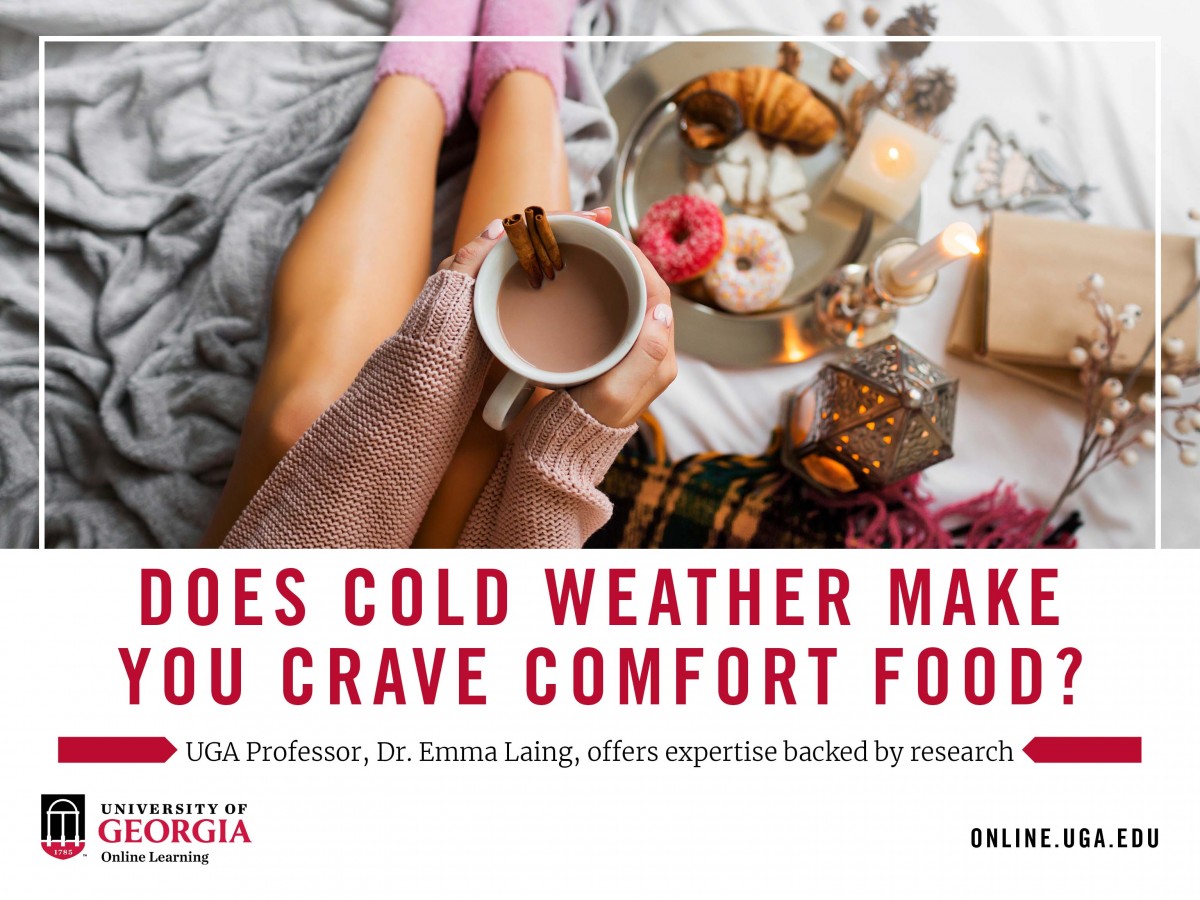Does cold weather make you crave comfort food?
Does cold weather make you crave comfort food?
As the seasons change and the temperatures begin to drop, we may find ourselves reaching for more plentiful, rich foods. Comfort foods are associated with cold weather and bring us just that – comfort. With Thanksgiving and holiday parties just around the corner, this can mean a rush of shared recipes and photos of comfort food in our social feeds and Google searches for comfort food recipes are on the rise.

So is colder weather to blame for such cravings?
Dr. Emma Laing, UGA Online M.S. in Foods and Nutrition, Community Nutrition Professor and Director of Dietetics, has weighed in on this discussion and gives her opinion on the topic backed by research.
“Colder weather can create biological changes that make us want to eat more,” Dr. Laing said. “When the temperature drops it’s natural that we would want to crave foods that provide us warmth. Oftentimes the foods we choose in the winter months are higher in sugar and fats than we would otherwise consume.”
According to Dr. Laing, cooler temperatures can have more than one effect on our cravings.
“Our cues for staying hydrated are also altered in colder temperatures and being dehydrated can also lead to hunger,” she said, adding that fewer daylight hours can also lead to extra snacking.
As a result, the colder weather is a large factor in how we decide to fill our plates. But the weather isn’t the only thing to blame, as winter also brings seasonal celebrations, fluctuation of hormones and the availability of certain foods.
“In the winter months, we have an abundance of holidays, celebrations and sporting events that are centered on food,” Dr. Laing said, “And these alone can impact our eating habits. The cravings are guided by our physiology and psychology and our environment around us.”
In addition to this, some people experience hormonal fluctuations with the seasons and changes in sunlight exposure. These changes affect our stress level, appetite, ability to sleep, and might lead to feeling lethargic. People who are sensitive to these changes are likely to crave sugary or energy-dense foods to combat fatigue.
Colder temperatures and seasonality of foods along with fluctuating prices and the availability of certain produce impacts our winter eating habits. According to Dr. Laing, succumbing to comfort food cravings isn’t necessarily a bad thing so long as our diet is otherwise balanced, we stay hydrated and get exercise.
Here are Laing’s five tips for eating healthy and staying active this winter:
- Select meals and snacks that are high in fiber, such as seasonal fruits and vegetables, beans, peas, and whole grains
- Incorporate vegetables, legumes, and lean proteins into soups, chilies, or stews
- Make it a priority to stay hydrated in the winter
- Enjoy holiday gatherings with family while being mindful of portion sizes
- Engage in a variety of indoor and/or outdoor physical activities that promote cardiovascular health and muscle strengthening
The original article appeared on 11Alive.
